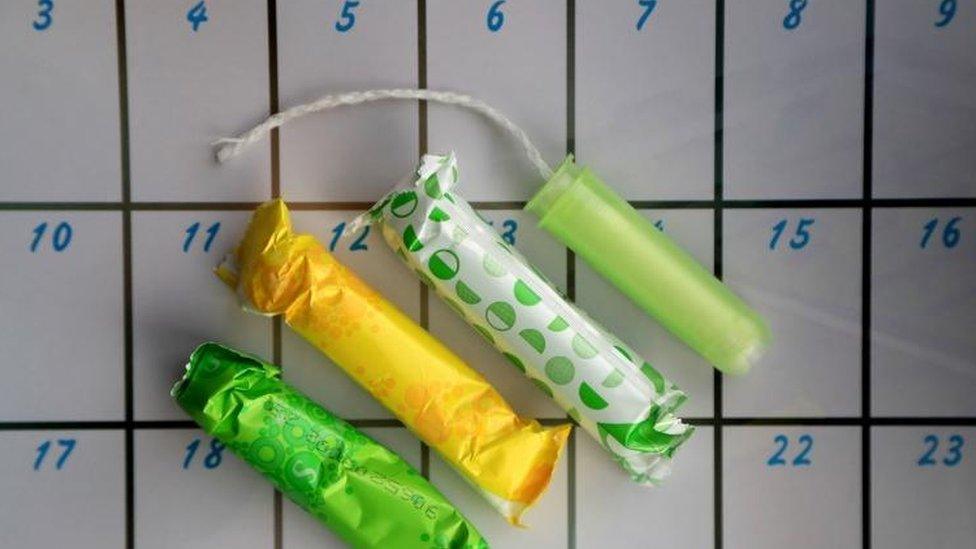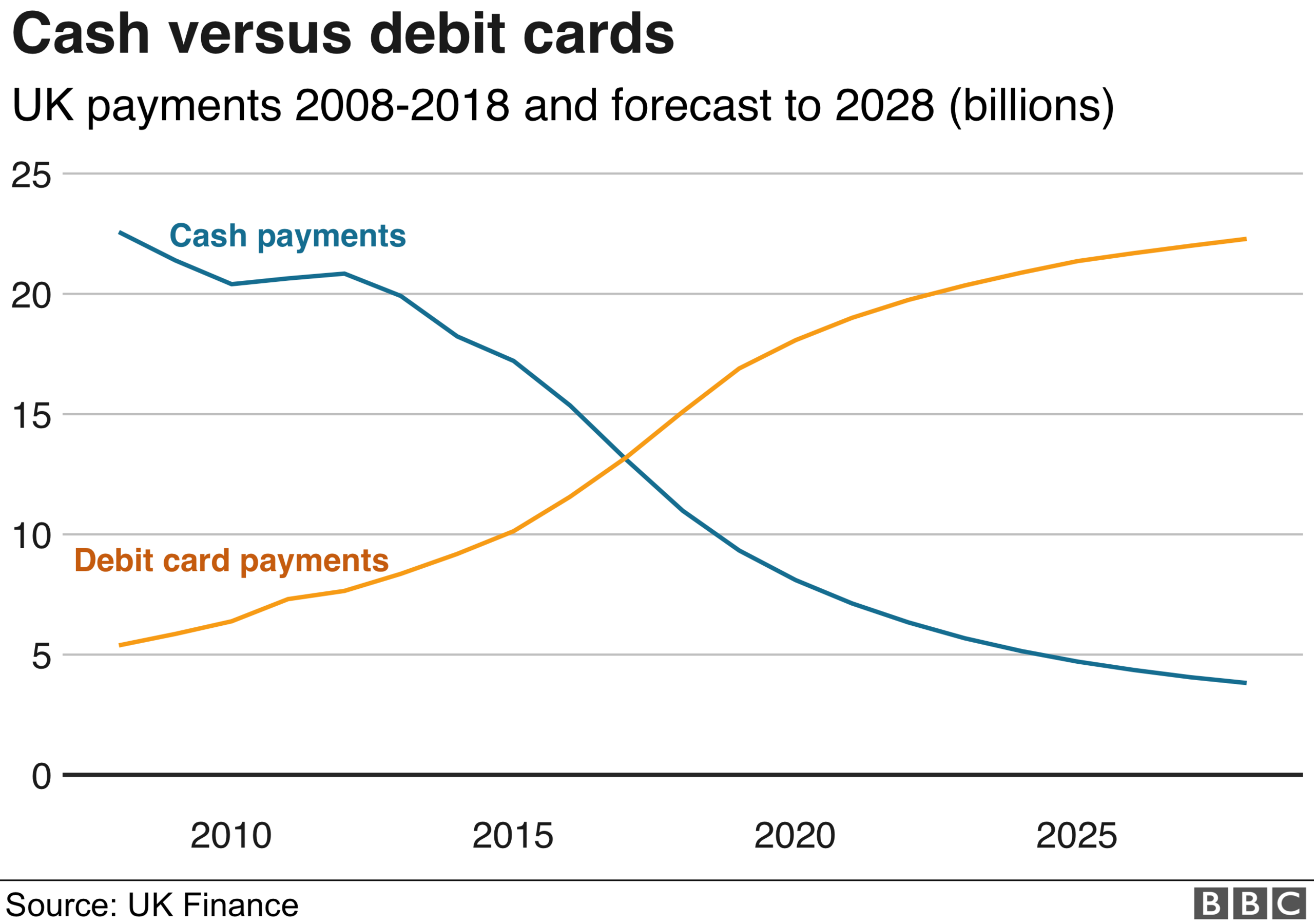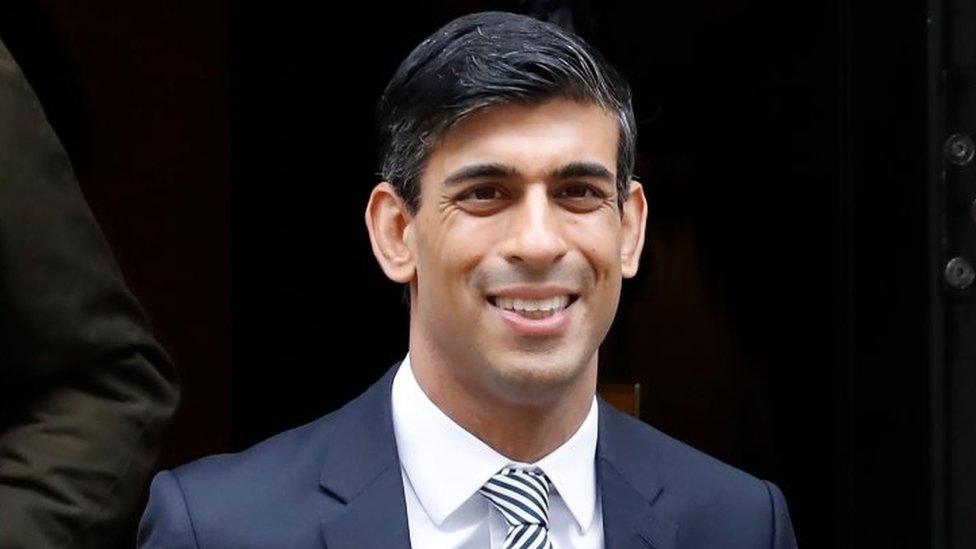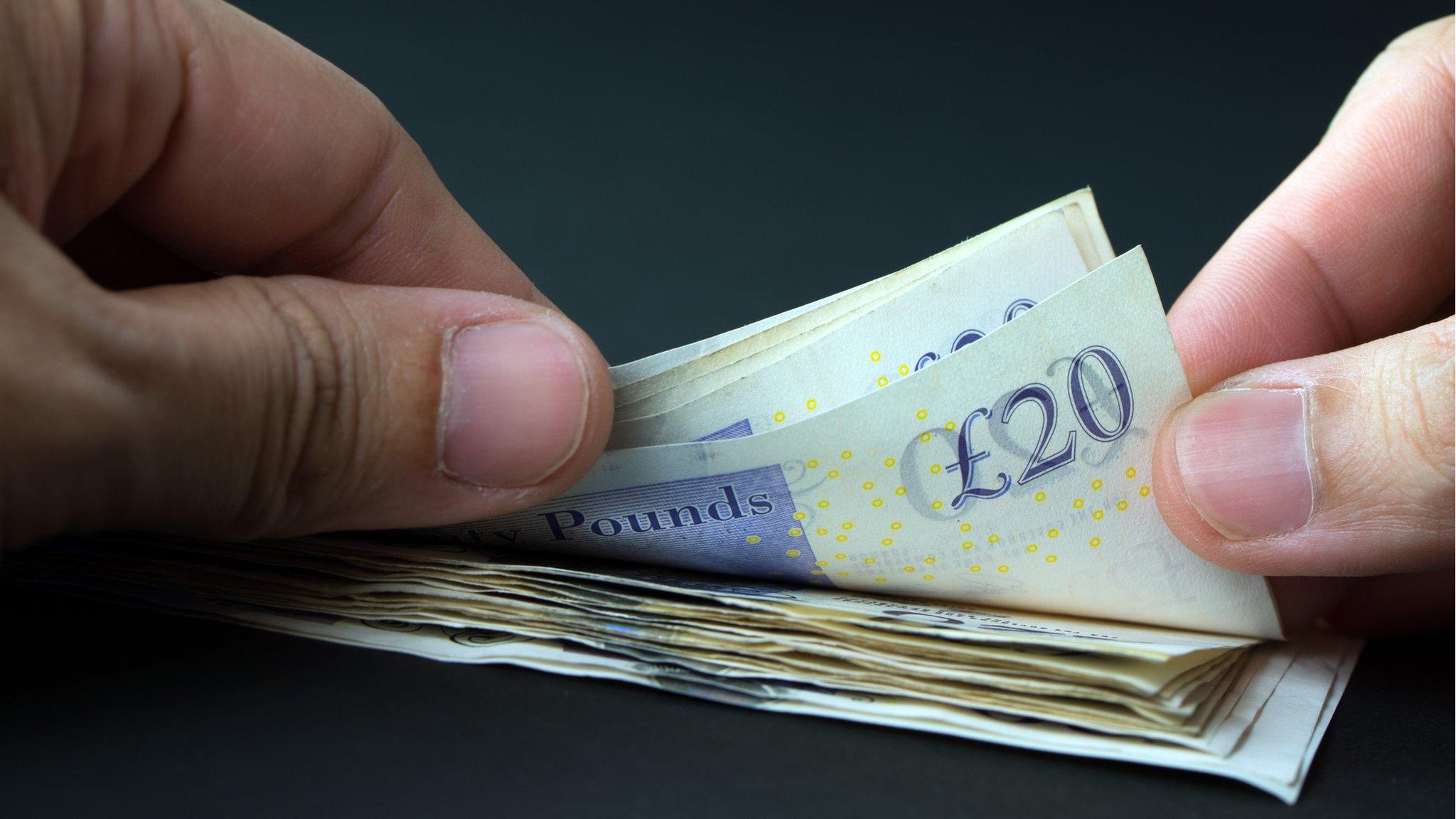Budget 2020: Pledges on tampon tax and the future of cash
- Published

Various rates of VAT have been set for sanitary products
The 5% rate of VAT on sanitary products - referred to as the "tampon tax" - will be abolished from January, the chancellor will announce next week.
An EU directive meant the rate could not fall below 5% while the UK remains in the bloc's customs union.
Since 2015, the revenue collected has been earmarked for charities working with vulnerable women and girls.
Campaigners welcomed the move but called for more help for "chronically underfunded" women's charities.
Legislation has already been through Parliament to ensure the change can be made. The Treasury estimates the move will save the average woman nearly £40 over her lifetime, with a cut of 7p on a pack of 20 tampons and 5p on 12 pads.
VAT on sanitary products has been levied at various rates since 1973.
The Treasury said £47m had been collected so far and tax collected until the end of the year would continue to be put into the fund for charities.
But Vivienne Hayes, the chief executive of the Women's Resource Centre charity, called on the government to pay the estimated £700m raised during the lifetime of the tax to be paid to women's charities.
Campaigner Gemma Abbott from the Free Periods group welcomed the move to abolish VAT on sanitary products, saying the tax had "no place in a society that seeks gender equality".
She told BBC Breakfast the revenue raised from the tax had provided help to a "chronically underfunded area" and called on ministers to "reaffirm their commitment to supporting charities... even once the tampon tax has been removed."
'No place for tampon tax in gender equal society'
Wednesday's Budget will also see Chancellor Rishi Sunak commit to new laws designed to ensure that millions of people have access to cash.
Increasingly, shoppers are paying with contactless cards and doing their banking on mobile phone apps. Banks have closed hundreds of branches and cash machine operators have either closed machines, or imposed charges.
There are warnings that cash would become difficult to get hold of, and that the big distribution centres and security vans will be obsolete.

The chancellor will promise new laws to give regulators the power to force banks to support customers' cash needs. There will also be a plan to create a better system to transport money around the country in smaller amounts.
Lessons are being learnt from Sweden, which has moved even faster towards a cashless society, and where there have been angry protests.
The Swedish government has backtracked and has just imposed a law requiring large banks to dispense cash to those who need it.
Anabel Hoult, chief executive of consumer group Which?, said: "We are delighted that he has listened to consumers and is ready to legislate to help millions of people who have been hit hard by bank branch and cash machine closures.
"We know that the cash system faces irreversible damage within the next two years, so we look forward to working with the government, regulators and industry to ensure this commitment is swiftly turned into action that protects cash for as long as it is needed."
- Published6 March 2020

- Published26 February 2020

- Published19 February 2020
